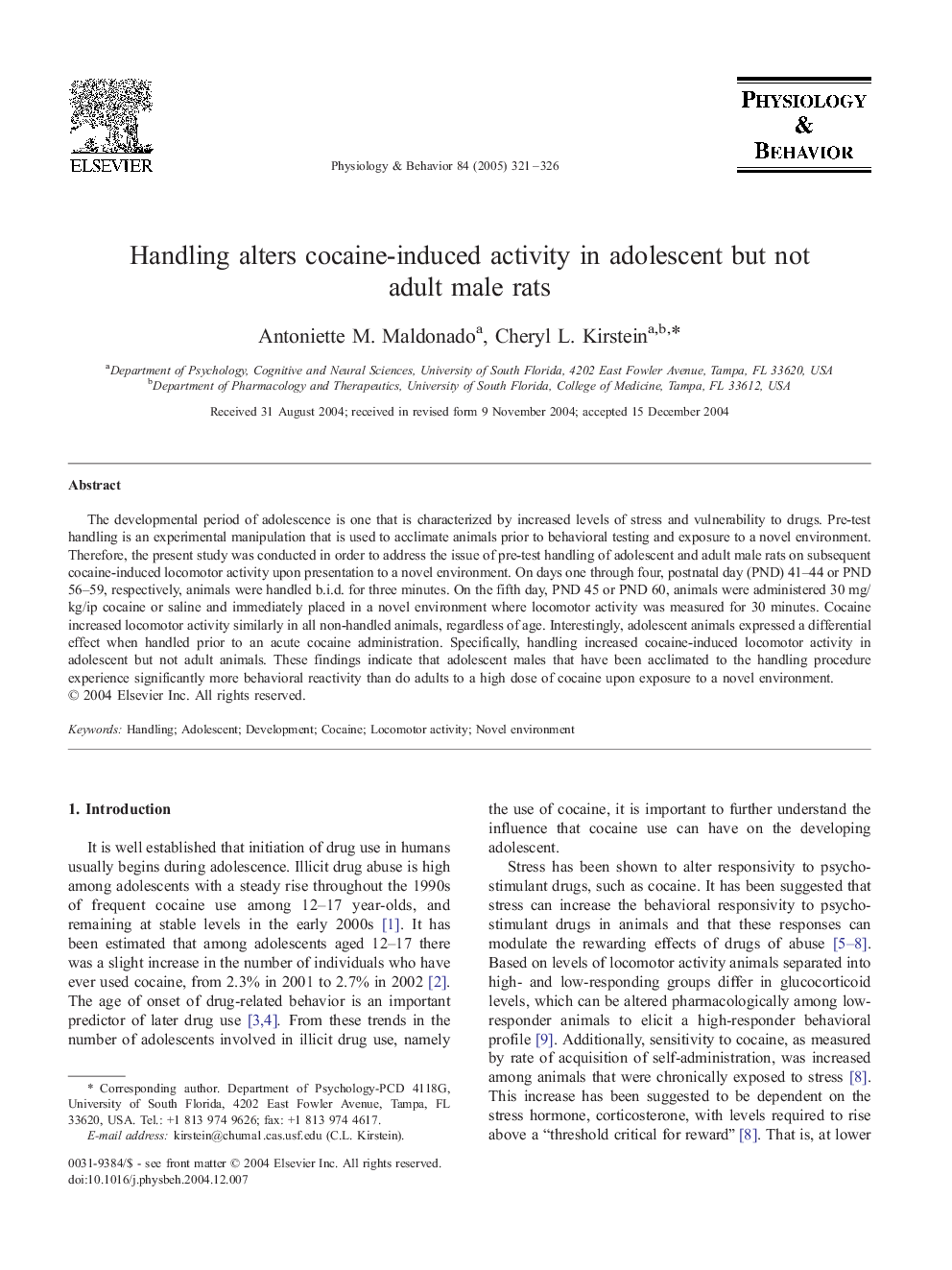| Article ID | Journal | Published Year | Pages | File Type |
|---|---|---|---|---|
| 9149572 | Physiology & Behavior | 2005 | 6 Pages |
Abstract
The developmental period of adolescence is one that is characterized by increased levels of stress and vulnerability to drugs. Pre-test handling is an experimental manipulation that is used to acclimate animals prior to behavioral testing and exposure to a novel environment. Therefore, the present study was conducted in order to address the issue of pre-test handling of adolescent and adult male rats on subsequent cocaine-induced locomotor activity upon presentation to a novel environment. On days one through four, postnatal day (PND) 41-44 or PND 56-59, respectively, animals were handled b.i.d. for three minutes. On the fifth day, PND 45 or PND 60, animals were administered 30 mg/kg/ip cocaine or saline and immediately placed in a novel environment where locomotor activity was measured for 30 minutes. Cocaine increased locomotor activity similarly in all non-handled animals, regardless of age. Interestingly, adolescent animals expressed a differential effect when handled prior to an acute cocaine administration. Specifically, handling increased cocaine-induced locomotor activity in adolescent but not adult animals. These findings indicate that adolescent males that have been acclimated to the handling procedure experience significantly more behavioral reactivity than do adults to a high dose of cocaine upon exposure to a novel environment.
Related Topics
Life Sciences
Biochemistry, Genetics and Molecular Biology
Physiology
Authors
Antoniette M. Maldonado, Cheryl L. Kirstein,
